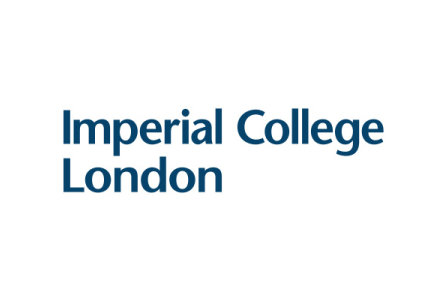Imperial College London hosts the visit of India’s Minister of Science
India’s Minister of Science and Technology Dr Jitendra Singh visited Imperial to meet researchers and students and strengthen ties with India.
The Minister, accompanied by Professor Ajay Kumar Sood, Principal Scientific Advisor to the Government of India, and other scientists and officials, visited Imperial’s labs and heard about Imperial’s growing research collaborations with India.
Indian Science Minister
The Indian Minister of Science and Technology met some of Imperial’s Indian students and researchers
The Minister also met with some of Imperial’s Indian students and scholars and encouraged them to reach their potential. He also highlighted the rapid progress science in India was making in a number of fields and the growth of Indian startups.
Professor Mary Ryan, Vice Provost (Research and Enterprise) at Imperial College London, said: “We’re incredibly proud of our longstanding connections with India.
“We are privileged to host just over 800 talented and highly entrepreneurial students from India. Imperial is also home to a thriving community of researchers and staff with connections to India.
“Our academics collaborate with a range of partners in India, as well as our incredible alumni community, to tackle shared health and climate challenges such as the transition to clean energy, antimicrobial resistance, and infectious disease.”
New scholarship programme for Indian students
Minister
During the visit Imperial announced a new scholarship programme for students in India
During the visit Imperial announced that it was creating a new scholarship programme for Indian Masters students.
The ‘Future Leaders Scholarship’ programme will support 30 students over the next three years with half of the scholarships reserved for female scholars. The scholarships will be for students in MSc programmes across Imperial’s Faculties of Engineering, Natural Sciences, Medicine and the Business School.
Professor Peter Haynes, Vice-Provost (Education and Student Experience) at Imperial, said: “It is a real priority for Imperial to continue to facilitate and support two-way mobility between India and the UK.
“I hope that we are able to welcome even more students from India in the future and I am very pleased to announce that Imperial is investing just over £400,000 in scholarships for the future STEM-B leaders of India. The investment will see the launch of 30 merit-based scholarships over the next three years, with the first application round opening next academic year.
“At least 50 per cent of these prestigious ‘Future Leaders’ scholarships will be reserved for female scholars. I hope that we can continue to work together to build upon our success and that Imperial can be at the fore of supporting UK-India partnerships in the coming decade.”
Imperial also announced a new partnership with Chevening for scholars from India. Funding will be available for scholars who demonstrate the greatest potential to become leaders, decision-makers and opinion-formers in India. The Chevening scholarship award will support academic fees and provide a monthly stipend.
World-leading research
Mars Rover
The Minister saw some of the latest imaging from the Mars Rover project
The Science Minister visited Imperial’s Carbon Capture Pilot Plant to see how Imperial students are training to become the next generation of chemical engineers.
He also saw a demonstration of the latest imaging from the Mars Rover at the Data Science Institute by Professor Sanjeev Gupta.
Wave Tank
Imperial scientists used the Wave Tank facility to highlight research into ocean plastics
The Minister then visited Imperial’s Hydrodynamics lab for a demonstration of the wave tank by Professor Washington Ochieng and Professor Graham Hughes.
Links with India
Minister
Imperial is strengthening its links with partners in India
Imperial has longstanding and successful links with India – and is committed to expanding and strengthening partnerships with the country.
Imperial and the Indian Institute of Science (IISc), Bangalore launched an ambitious partnership in research and education.
The joint seed fund with IISc has already enabled exchange mobility this academic year, with partners spending time in each other’s labs to explore topics as diverse as bio-acoustics, air pollutants and quantum physics.
Imperial’s School of Public Health has been collaborating with the Indian Council of Medical Research (ICMR) in support of India’s COVID-19 response.
Academics from the Jameel Institute and MRC Centre for Global Infectious Disease Analysis, including Professor Katharina Hauck and Professor Nimalan Arinaminpathy, have supported scientists within the ICMR, to perform modelling analysis to address key questions faced by public health authorities in the country. For example, early in India’s vaccination drive against COVID-19 – the largest in the world – Imperial collaborated with the ICMR to provide modelling analysis informing the prioritisation of risk groups.
A major focus of Professor Arinaminpathy team’s research is in the control of human tuberculosis (TB) in high-burden countries. They work closely with India’s National Tuberculosis Elimination Programme, contributing mathematical models to help inform intervention planning to meet India’s ambitious goals for TB elimination.
Earlier this year Imperial welcomed the Indian High Commissioner to the College to discuss deepening ties with the country.
Last year Imperial hosted the former Principal Scientific Advisor, Prof Vijay Raghavan and his UK counterpart, Sir Patrick Vallance, at an event to discuss the role of science and innovation partnerships in driving the India-UK Roadmap and creating healthier, resilient societies.

